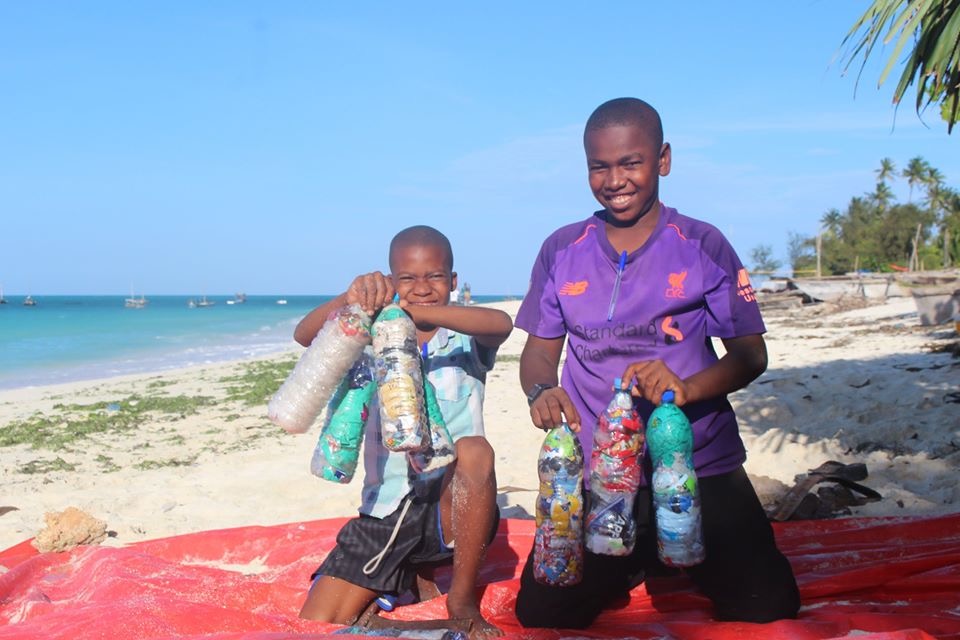By FREDDY MACHA
The first impression of Heather Owen is her love for Zanzibar. Normally, that fondness for Tanzania's sister islands (Pemba and Zanzibar) has a tourist twang. Tourists flocking to the spicy archipelago always praise the beaches, the food, the warmth of Zanzibari people plus the general joy of being in an exotic East African garden.
Zanzibar remains one of the most special places in the world. However, with Heather Owen she was (and is) well beyond such outsider's fascination with a place. She lived here, she was involved in day to day things, made friends, knew locals personally and she....well, she noted the plastic waste. Hey! We have all done it!
We go somewhere we fancy, take photos, go home, show friends and family, etc. We’ve been there, done it. Historical places, animal reserves, theatres, giant stadiums, new countries, towns, villages, sights, snaps and well, memories stored in our phones and albums. Heather saw the plastic.
I have personally seen the plastics too, not just in Zanzibar, across East Africa. All over mother earth. My best snaps are of goats feeding on the plastic in Zanzibar. They have tortured my conscience for decades. So, what did this London tourist do?
In 2017, Heather Owen, visited Zanzibar liked it very much and kept returning. She was soon volunteering in one of the local hospitals in Kivunge ...north area for six months. And boom....she began noticing things “ she would have never seen before...”and ….that changed her life.

She says, she was: “Overwhelmed by the amount of plastic and that there wasn't anyone to help...so as we were living in a village I was very fortunate to meet so many amazing people in the community and talk to them about it...and since plastic is relatively new in the island, they wanted to do something about it. “
Eventually Zecobricks was born. The idea is to recycle the clean and dry plastic and “stuffle” it into a clean and dry plastic bottle which forms bricks. Ms Owen says London based architects, Feilden Clegg, an award -winning firm, designed a new school in Nungwi, north Zanzibar.
The building is made of these Zeco-bricks...which she feels will empower the community into creative thoughts. Normally plastic is burned in Zanzibar. But using recycled plastic to build instead of turning it into toxic ashes is better. Also using the school to teach English will develop education indirectly via (and as a result of) the local recycled plastic project.
As a professional teacher, Heather 's second strand is developing language skills of pupils in Zanzibar (the zealous Briton admits feeling very much at home in Nungwi), and when the youngsters get older they have a chance of employment via the booming tourist industry of Zanzibar. So, you can see how an individual initiative has blossomed. Heather Owen is of course not alone. Backed by a team of volunteers, both from the local Zanzibar hamlets, mainland Tanzania and the UK., the one year old Zecobricks project remains mostly self-funded.
There is one particular company, a local based salt making company called Zalt, who provide monthly funds, i.e. a £100. Zalt's vision is to shape “an ecosystem for sustainable growth...” and considers itself the first coastal salt company mindful of the environment while empowering communities.
The hundred pounds goes to the mothers. Local mothers seem to be the backbone of the project. Of course, a 100 pounds (around $141 Dollars, or a Million and half TZ shillings) is not much. The plan is for these mothers to have a much better reliable, consistent income. There are volunteers from the resonant tourist industry, e.g. Stone Town too. Plus official contacts from the District Environmental department.
Since Covid -19 has made travelling difficult, Heather has maintained London as base, where she also works. With lack of sponsors, she relies on her own salary as a teacher ...em plus... personal contacts. Plus goodwill hoping bigger companies will subsequently give a financial hand. Inshallah.
So far Zecobricks is a baby and very much a budding plan in progress. Let us hope its wings continue to mushroom. Right now we are in a historical period. The United Nations has declared 2021 to 2030 the “Decade on Ecosystem restoration” - meaning - we are in the deadline for the sustainable development goals “ and the timeline scientists have identified as the last chance to prevent catastrophic climate change.”
That is why efforts and projects like Zecobricks are fundamentally necessary and heroic. They should be supported by all of us, who , earnestly care, for our one and only, home. Nest, Mother Earth.
-Email: This email address is being protected from spambots. You need JavaScript enabled to view it.
-Web: www.makalazangu.blogspot.com




